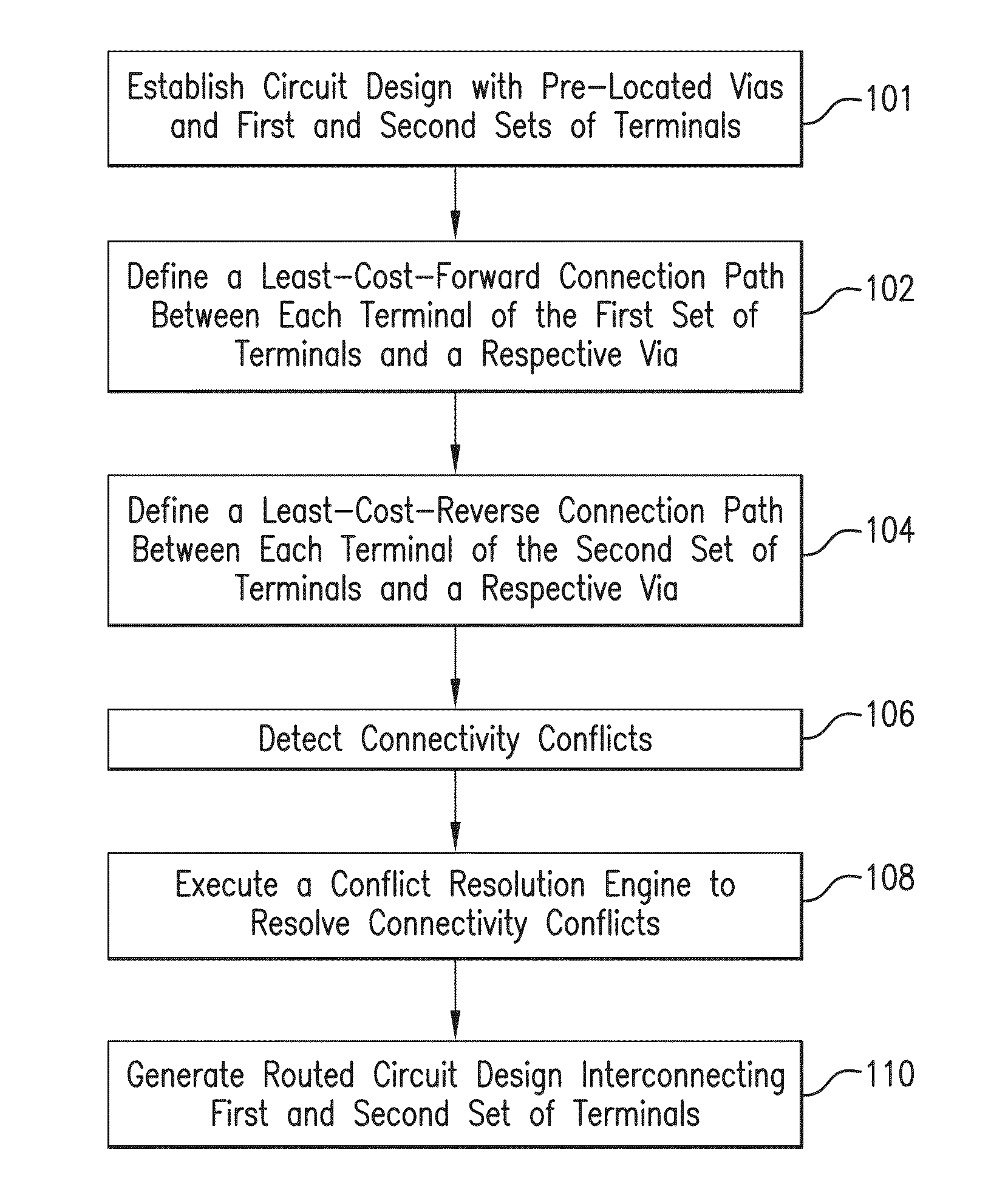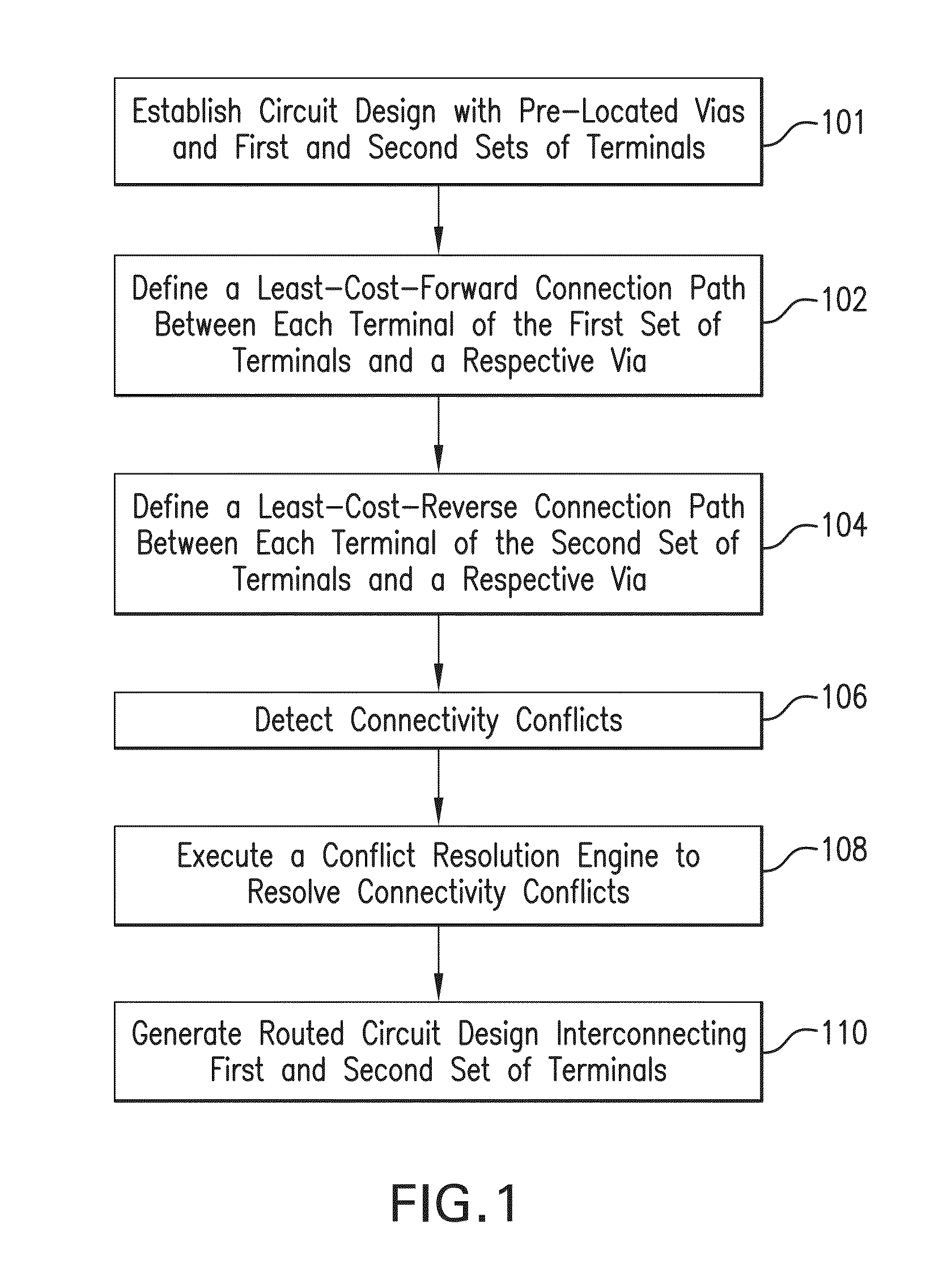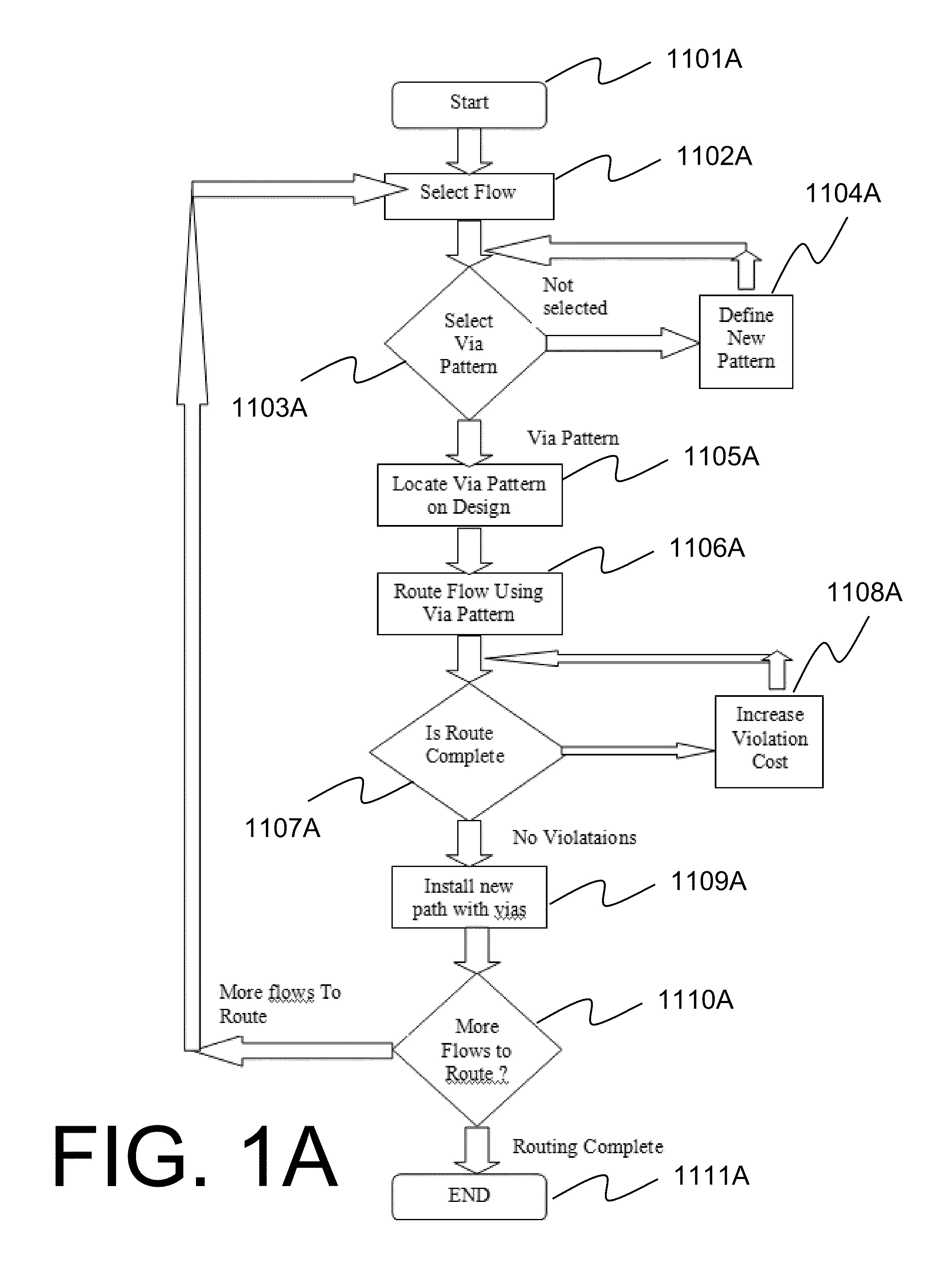Method and system for routing optimally between terminals through intermediate vias in a circuit design
a circuit design and intermediate via technology, applied in the field of routing terminals through intermediate vias in a circuit design, can solve the problems of inability to accept input from a designer, inability to take into account design preferences or instructions, and difficulty in automating routing approaches
- Summary
- Abstract
- Description
- Claims
- Application Information
AI Technical Summary
Benefits of technology
Problems solved by technology
Method used
Image
Examples
Embodiment Construction
[0064]Reference will now be made in detail to the embodiments of the present general inventive concept, examples of which are illustrated in the accompanying Drawings, wherein like reference numerals refer to like elements throughout. It is to be understood that while disclosed with reference to exemplary embodiments described below, the present invention is not limited to such illustrative embodiments themselves.
[0065]Systems, connected components, integrated circuits (ICs), microchips, systems-on-chip, circuitboards, and the like, may be modeled in a variety of different ways in an electronic design automation (EDA) flow. For example, some of the ways of modeling a system include a merely logical schematic diagram which omits all physical characteristics or dimensionality and merely shows simplified or abstracted representations of components or cells within the device.
[0066]Another manner of representing a system is a physical layout which shows an almost fully elaborated schemat...
PUM
 Login to View More
Login to View More Abstract
Description
Claims
Application Information
 Login to View More
Login to View More - R&D
- Intellectual Property
- Life Sciences
- Materials
- Tech Scout
- Unparalleled Data Quality
- Higher Quality Content
- 60% Fewer Hallucinations
Browse by: Latest US Patents, China's latest patents, Technical Efficacy Thesaurus, Application Domain, Technology Topic, Popular Technical Reports.
© 2025 PatSnap. All rights reserved.Legal|Privacy policy|Modern Slavery Act Transparency Statement|Sitemap|About US| Contact US: help@patsnap.com



